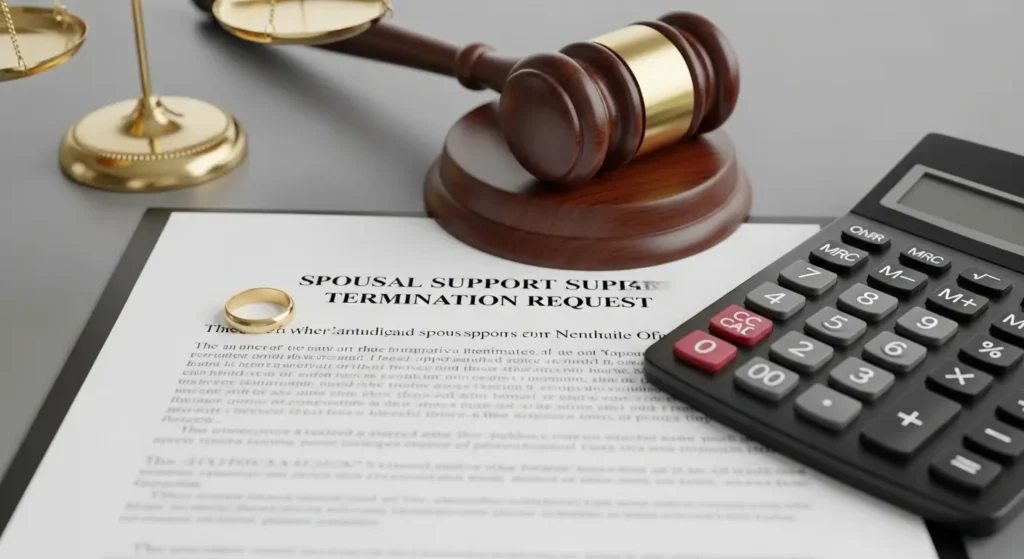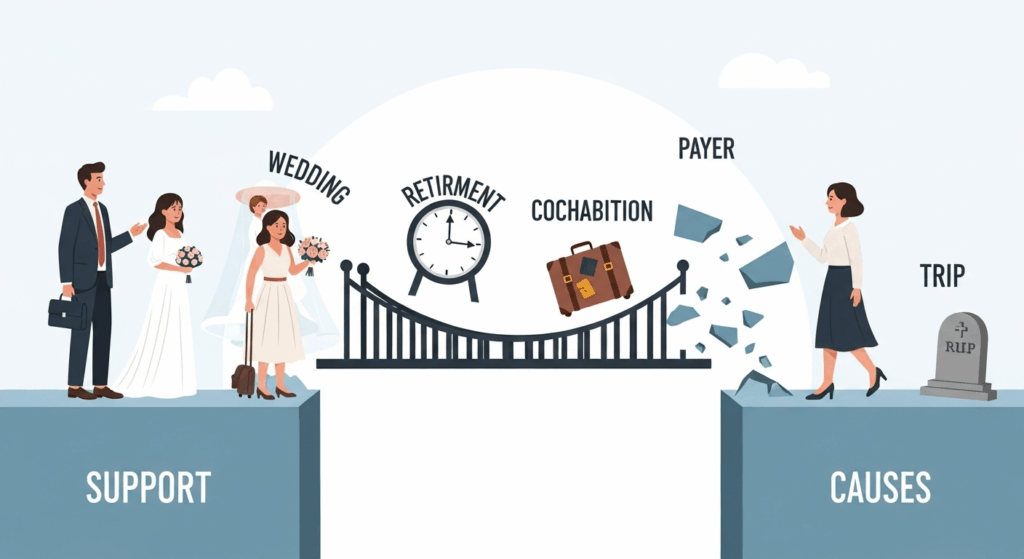
When Do Spousal Support Payments Stop?
Spousal support—also known as alimony or spousal maintenance—is often one of the most complex and emotionally charged issues in a divorce. If you’re currently paying or receiving spousal support, you may be wondering: When does it end? Is there a specific date when payments stop, or do they continue indefinitely? What if circumstances change?
The reality is that the duration of spousal support varies widely depending on the terms of the divorce, the type of support awarded, and whether any significant life changes occur. A divorce and separation attorney can help you understand, modify, or end your spousal support obligation.
Whether you’re a paying spouse looking for clarity or a recipient wondering about your rights, understanding when spousal support payments stop is key to planning your financial future.
Understanding Spousal Support Basics
Spousal support is a financial arrangement ordered by a court or agreed on in a divorce settlement. It is designed to help the lower-earning spouse maintain a reasonable standard of living during or after the transition from marriage.
Support payments can be made on a temporary basis (during the divorce proceedings) or as part of a final divorce judgment. Not all divorces include spousal support, and when they do, the terms—including how long payments last—can vary significantly.
To determine when support ends, it’s important to first identify what kind of spousal support was awarded.
Types of Spousal Support and Their Durations
There are several common types of spousal support, each with different rules and expectations about duration:
Temporary Support
This type of support is awarded during the divorce process to help the lower-earning spouse manage living expenses and legal costs until the divorce is finalized. It automatically ends once the final divorce judgment is issued.
Rehabilitative Support
Rehabilitative support is short-term and intended to help the receiving spouse gain financial independence. This can involve going back to school, completing job training, or re-entering the workforce. It typically lasts until the recipient becomes self-supporting or until a specific time frame set by the court.
Durational Support
Durational or fixed-term support lasts for a set period following the divorce. Courts often use the length of the marriage to help determine how long support should continue. For example, in some cases, support may last for half the length of the marriage.
Permanent Support
Despite the name, permanent support doesn’t always last forever. However, it may continue indefinitely, especially after long-term marriages or where one spouse cannot become self-sufficient due to age, disability, or health concerns. Termination of permanent support typically requires a court order or proof of a qualifying life event.
Lump-Sum Support
Instead of monthly payments, some support awards are paid all at once. This one-time payment settles all future support obligations and is not modifiable or terminable.
Common Reasons Spousal Support Ends

Even if a support order doesn’t have a fixed end date, certain life events or legal actions can bring payments to a close. These are the most common triggers that end spousal support:
Expiration of the Support Term
If your divorce decree or settlement agreement sets a specific end date for support, payments will stop automatically on that date unless extended by the court. It’s important to keep track of these deadlines and consult a family law attorney if changes are needed.
Remarriage of the Recipient
In most cases, if the spouse receiving support gets remarried, the paying spouse can file a motion to terminate spousal support. The rationale is that the new spouse should now contribute to the recipient’s financial well-being.
Cohabitation
If the recipient begins living with a romantic partner in a long-term, supportive relationship, this may justify a reduction or termination of support, even without a formal marriage. Proving cohabitation can be tricky and usually requires evidence such as shared expenses, joint bank accounts, or statements from witnesses. A family law attorney can build a case or defend against one.
Retirement of the Paying Spouse
When the paying spouse retires in good faith, especially at a typical retirement age, they may request that spousal support be reduced or terminated due to decreased income. Courts often evaluate whether the retirement is voluntary and reasonable under the circumstances.
Significant Change in Circumstances
If either party experiences a major change in financial status, such as job loss, disability, or a substantial raise, it may justify a modification or termination of the spousal support order. The change must usually be involuntary and permanent, and you will need to file a motion with the court to make the change official.
Death of Either Party
Spousal support typically ends on the death of either the paying or the receiving spouse unless the divorce agreement specifies otherwise (such as life insurance to replace support).
Can Spousal Support Be Modified?
Yes—in many cases, spousal support is modifiable. This means if your circumstances change significantly, you can ask the court to reduce, extend, or terminate payments.
Because modification laws and standards vary, it’s important to work with a knowledgeable family law attorney who can guide you through the process and help you avoid unintended consequences.
How to Legally End Spousal Support

If you believe that your spousal support payments should stop due to a qualifying event (like remarriage, cohabitation, or financial hardship), you can’t simply stop paying. You must take legal action by petitioning the court to terminate the support order.
Failing to follow proper legal procedures can lead to enforcement actions, including income garnishment, fines, or being held in contempt of court. Even if your ex-spouse has remarried or is cohabiting, you need a formal court order to stop payments legally.
A family law attorney can gather evidence, file the necessary paperwork, and present your case in court. Likewise, if you are the recipient of spousal support and your ex-spouse is trying to reduce or terminate payments unfairly, an attorney can defend your rights.
Talk to a Family Law Attorney About Your Options
Spousal support doesn’t have to be a financial mystery or a source of stress. Whether you’re trying to understand when your payments will end, need to enforce your rights as a recipient, or want to request a modification, a family law lawyer can provide the clarity and support you need.
An experienced family law lawyer can:
- Review your divorce decree and explain your obligations
- Negotiate support terms or file for modification
- Represent you in court if disputes arise
- Protect your financial interests and long-term stability
Support arrangements can change, and the sooner you speak with a legal professional, the better equipped you’ll be to handle those changes smoothly and lawfully.
Take Control of Your Financial Future
Understanding when spousal support payments stop is key to planning your next chapter. Don’t rely on assumptions or outdated advice—get the information and guidance you need to make smart decisions.
If you’re unsure about the terms of your support order, facing a dispute with your ex-spouse, or experiencing a life change that affects your ability to pay or receive support, contact a family law lawyer today. A brief consultation can save you time, stress, and thousands of dollars in the long run.
- Income Disparity and Child Support in Illinois - January 15, 2026
- How Is Child Custody Determined in Illinois? - January 14, 2026
- How Do I Adjust Time Sharing to Accommodate New Circumstances? - January 13, 2026
